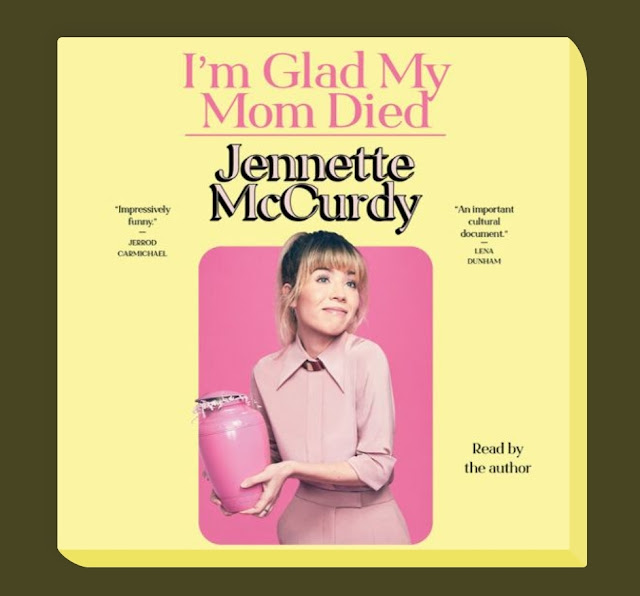I’m Glad My Mom Died
Jennette McCurdy’s I’m Glad My Mom Died
is an honest, raw exploration into the child actor’s childhood, struggles
with eating disorders, and abuse.
I’m Glad My
Mom Died is a
masterpiece. McCurdy’s examination into her painful past made me want to reach
into the pages and save her. She delves into the dark parts of her childhood
painting colorful memories of being held emotionally hostage by her mother and
her mother’s cancer diagnosis.
As a child,
McCurdy’s mother begins to groom her into being the child actor that her mother
never could be. She is enrolled in every class imaginable so long as it could
help Jennette land her next role and eventually land her big break. The obsession to make her child a star is
unsettling. However, as her obsession grows, Jeanette’s desire to act fades.
The extent to
which McCurdy is violated is hard to take in. Jeanette gives a descriptive
account of the “medical examinations” her mother gives her into her teens, the
showers she is forced to take with her puberty aged brother, and the calorie
counting restrictions intended to prevent the actor from growing.
The depiction of
her mother weaponizing her cancer diagnosis to manipulate and control her
children is horrific. McCurdy and her siblings were forced to rewatch videos of
their ill mother over and over, despite their discomfort.
Throughout the
book, McCurdy shares the pressure she felt in trying to prevent her mother from
imploding and becoming volatile. She writes about her mother’s rage filled
fights with her father. The instability and chaos that engulfed her home filled
McCurdy with anxiety and desperation. She was always waiting for the other shoe
to drop. She recalls her attempts at trying
to make her mom happy. Whether it was eating
ice cream she no longer liked to hearing her mom rant about the same topics
over and over. McCurdy wanted her mom to be happy and lost herself in her mothers’
mental illness.
At one point in
the book. McCurdy expresses her desire to stop acting. This was her mother’s
dream, not her own. The grueling scheduling and the pressure to impress was too
much for her. At her mentioning it to her mother, McCurdy’s mother goes into
hysterics behind the wheel, which causes her to recant her wish so long as it
made the hysteria stop. Eventually, McCurdy becomes an actor in her own life
not capable of distinguishing reality from acting.
When McCurdy
finally builds up the courage to move
out of the hoarded nightmare her mother’s home was, not only is she met with
resistance, but her mother also moves in
with her (unofficially). The independence McCurdy was seeking and excited for
is quashed by her mother’s co-dependency and need to control her daughter. The
fights they engage in are difficult to read. Your heart breaks for McCurdy with
every turn of the page.
McCurdy’s detailed
examination of her childhood is
transformative. Her memoir is more than sharing her traumatic experiences. It
is a truth of survival and healing.
Photo Credit: Simon & Schuster Book Cover. All credit to publisher, photographer, and author. No copywrite intended.


Comments